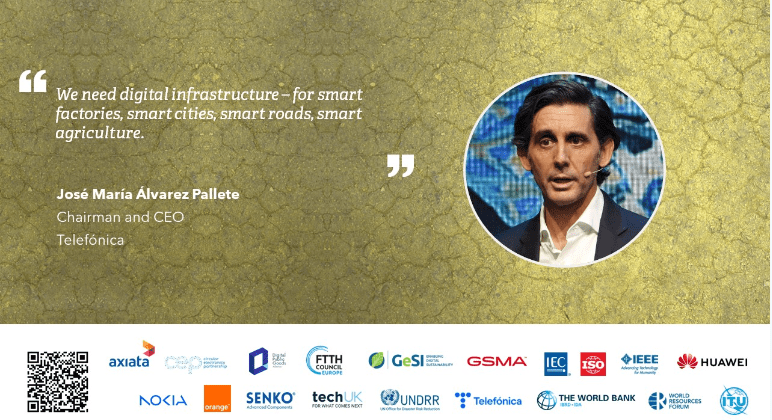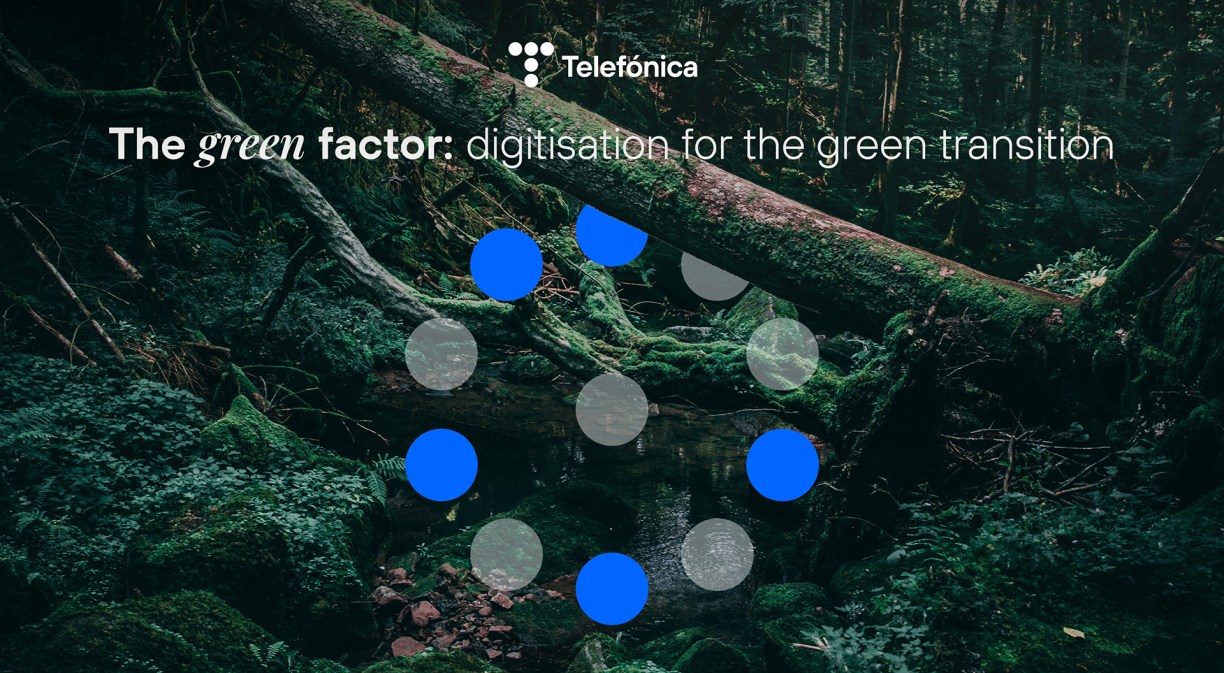The digital and green transition: an indivisible reality
In a context where climate change is arguably one of the most complex challenges we face, the digital transition has a defining role to play. The digital revolution has the potential to transform our world more profoundly than any previous technological revolution.
Thus, the green and digital transitions should be conceived not simply as twin transitions that go hand in hand, but as an inseparable reality that has the capacity to transform our societies towards a new paradigm based on decarbonisation, sustainability and the circular economy.
So far, these transitions have proceeded in a parallel and loosely connected way, not as synergistically as might be expected. This is something that must change in the coming years.
To reinforce and enhance the digital and green transition, Telefónica has prepared a new positioning document, The green factor: digitalisation for the green transition. We believe that a greater push for digitalisation, through transformative policies that serve to increase the adoption of digitalisation, supported by the development of basic infrastructures, will put society in a better position to meet the challenges of climate change and achieve more sustainable economic development.
Telefónica’s commitment to decarbonisation targets
The Paris Agreement, signed by 194 countries and the European Union, is the major initiative to set realistic long-term climate targets, such as reducing emissions to 55% by 2030 and achieving carbon neutrality by 2050. The agreement also aims to limit global warming to below 2°C and to make efforts to limit it to 1.5°C.
The private sector must do its part to reach the targets proposed in the Paris Agreement. Some are even going a step further. For example, Telefónica has committed to reducing emissions by 90% and neutralising residual emissions through the purchase of CO2 absorption carbon credits. In short, it is in everyone’s hands to reduce emissions and put the brakes on climate change.
The enabling effect of digital connectivity and solutions
Digitalisation is a key enabler for other productive sectors on their way to a green transition. Digitalisation improves efficiency in the consumption of material resources and energy, resulting in significant reductions in greenhouse gas emissions from sectors such as transport, industry and improving the sustainability of cities.
To enable the digitisation process, efficient telecommunications networks are needed. Telecommunications networks are the foundation of digitalisation and are an essential condition for other sectors to make progress in their decarbonisation process. Over the last decade, energy consumption from the use of telecommunication networks has remained stable and emissions have even decreased, despite huge increases in network traffic. This can be explained, among other factors, by the deployment of more efficient networks and the use of renewable energies.
Moreover, without digitalisation there can be no energy transition. In the current geopolitical context, European strategic autonomy can be achieved through the digital and green transition. Digitalisation is not only an essential condition for the modernisation of our economies through greater business competitiveness, increased labor productivity or more efficient production processes. It can also contribute to reducing inequalities and achieving greater social equity.
Green Digital Action: Focusing on the synergies of digital and green transition
On the occasion of World Environment Day on 5 June, the International Telecommunications Union (ITU) announced the creation of the Green Digital Action. From the very beginning, Telefónica has belonged to and contributed to this initiative, which involves the United Nations, governments, companies and civil society, to convene the Green Digital Action track at COP28 to intensify climate action driven by digital technology.

Initiatives such as the Green Digital Action can contribute decisively to this purpose. At Telefónica, we believe that in order to meet environmental objectives, progress must be made towards complete digitalisation. But this must be done under the highest environmental parameters and without leaving anyone behind. If companies, policy makers and citizens support this transformation, the impact will be multiplied in the coming years.











